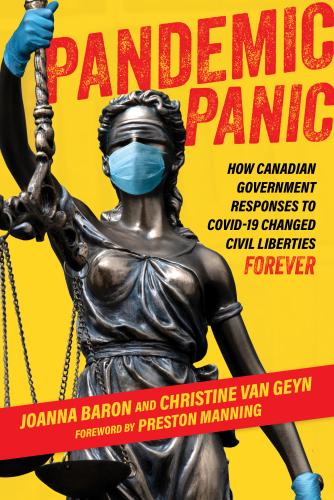In October 2022, the economist Emily Oster wrote a plea for a “pandemic amnesty”. After detailing various ill-conceived public health policies throughout the pandemic, Oster concluded that “The standard saying is that those who forget history are doomed to repeat it. But dwelling on the mistakes of history can lead to a repetitive doom loop as well.” She reasoned that many admittedly poor, public health decisions were made in an information vacuum and that the salubrious thing to do going forward would be to forgive and forget.
Oster was concerned about the fraying social fabric because of polarizing online discourse and urged the need to move forward. However, our anecdotal experience has shown a second common response to pandemic mishaps- going blank entirely on what occurred during the pandemic. We have observed a phenomenon of the surreal, sometimes inane, often unprecedented and unusual public health measures taken over the roughly three-year pandemic period being “memory holed”, where the mind completely fogs over. Many times in the course of writing this book, we have messaged one another upon unearthing one public policy absurdity upon another: the City of Toronto taping off cherry blossoms, Quebec requiring unvaccinated people to be chaperoned in plexiglass carts through the essential aisles of big-box stores.
We are not psychologists, but no doubt there is an evolutionary benefit to allowing a collective trauma to dissolve into the slip-stream: it’s unproductive to dwell on how we got by and how our government coped in real-time. Our memories are warped, first, by the “primacy effect”— our tendency to remember “firsts” exemplified by people universally naming George Washington when asked to recall former U.S. presidents. Most people have a crystal clear memory of the moment their plague year started in earnest— for us and many others; it was March 11, 2020, the day the NBA suspended games for the rest of the season.
The Covid-19 global pandemic continues to send shockwaves through our world, from mental health to culture and our civil liberties. Co-authors Joanna Baron and Christine van Geyn take us through the latter with cogent legal analysis as well as real-life examples of people struggling with our legal and political systems.
Whatever one thinks of this extraordinary time of vaccine mandates, lockdowns and protest, the authors illustrate what’s at stake for personal freedoms, now and in the future. This is a must-read for experts and people who just want to understand what happened and why.
In Pandemic Panic, Christine Van Geyn and Joanna Baron set out an authoritative and compelling account of the assault on civil liberties in Canada during the Covid era. It's meticulously researched and easily digestible for people of varying degrees of familiarity with the subject matter. This should be required reading for every judge and politician in Canada.
Those of us who care about the health of Canada's commitment to freedom as a foundational value were all gobsmacked by the way in which what can only be described as medieval superstitions seized hold of the minds of policymakers and opinion leaders during the time of COVID. We have been further dumbfounded by the post-pandemic flight from accountability and calm reflection on what happened and how we can and must do better next time, because there will be a next time. Joanna Baron and Christine van Geyn's book is a clarion call to resist this collective amnesia, to own up to what Canada did to its citizens in the name of a chimerical "safety". Read this book and you too will say, Never again.
“The pandemic was a huge event – politically, culturally, economically, personally. During the pandemic, governments around the globe behaved erratically and regularly contradicted themselves.
But at least those other countries have conducted inquiries into how they handled the pandemic. They did the work. Canada, so far, simply has not done that. This book is a vital investigation into the way governments in Canada dealt with the COVID-19 pandemic. It is a valuable and detailed mastication into an event that can no longer be swept under the carpet.”

